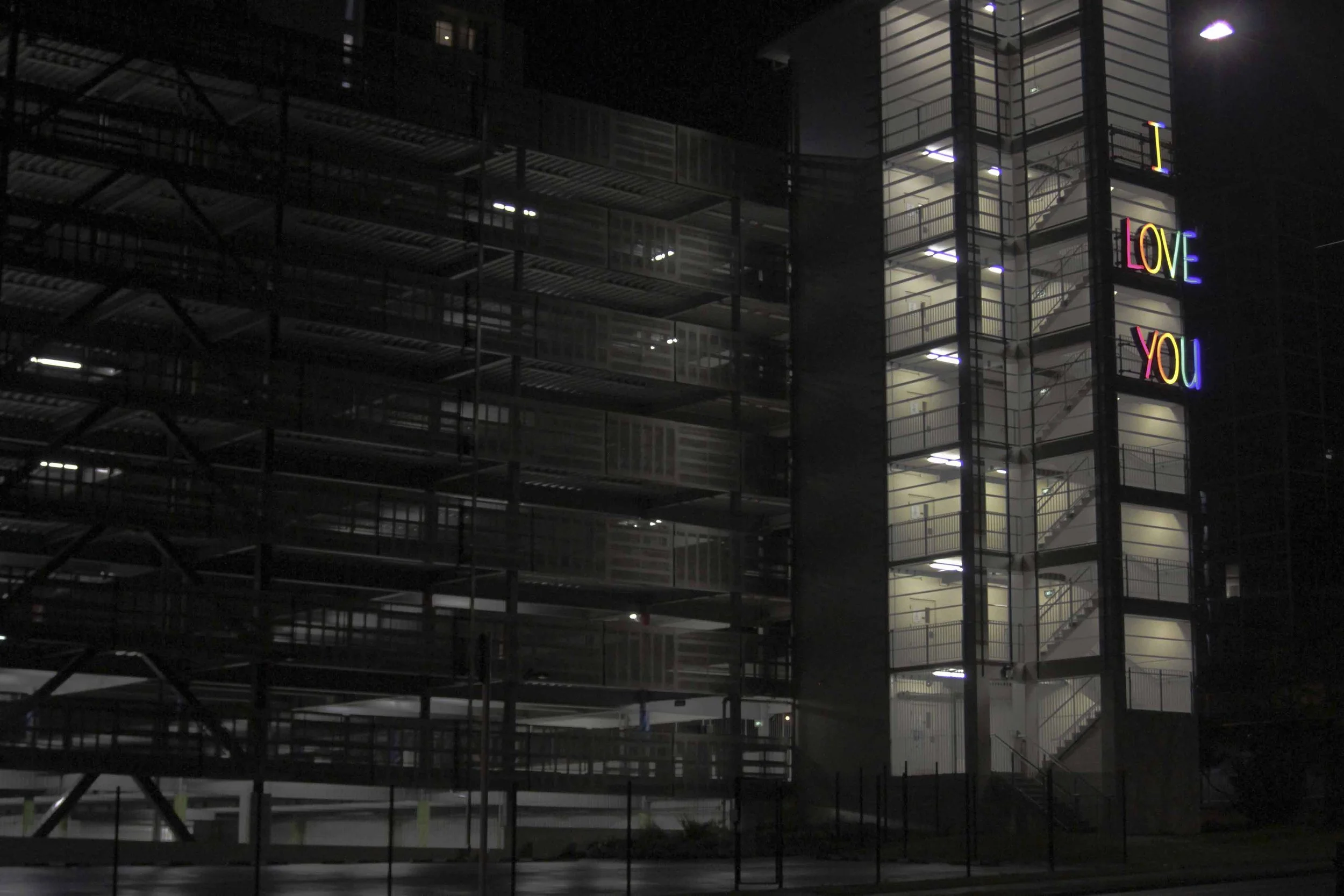I love you, Aroha atu, Aroha mai, Day and Night Commission, Ronwood Ave, Manukau City, Tāmaki Makaurau Auckland, 2015
Ko tōku nui, tōku wehi, tōku whakatiketike, tōku reo.
My language is my greatness, my inspiration, that which I hold precious.
I Love you, Aroha atu, Aroha mai uses Māori and English language that aims to influence the public by using an appeal to emotion. The appeal to emotion is often seen as being in contrast to an appeal to logic and reason. However, emotion and reason are not necessarily always in conflict. The statement “I love you” and in Māori “aroha atu, aroha mai” is charged with emotion and information. It often plays a double role – it not only symbolises and expresses feelings but also arouses or evokes feelings in others. When you say “I love you” to someone you usually are not simply expressing your feelings toward that person - you also hope to inspire similar feelings in that person toward you.
Usually a statement like “I love you” is said in an intimate environment. In the public arena this statement engages with our private and public self, directing our personal feelings and personal/public responses.
I Love you, Aroha atu, Aroha mai is two neon text works, installed on the stairwell exteriors of a carpark building; I Love you faces Ronwood Ave and Aroha atu, Aroha mai faces Davies Ave and Hayman Park.
The rainbow neon refers to Uenuku - the god of rainbows in Māori mythology. Rainbows or aniwaniwa were seen as omens and signs of future events. In contemporary society the colours of a rainbow signify freedom, peace, love and harmony.



